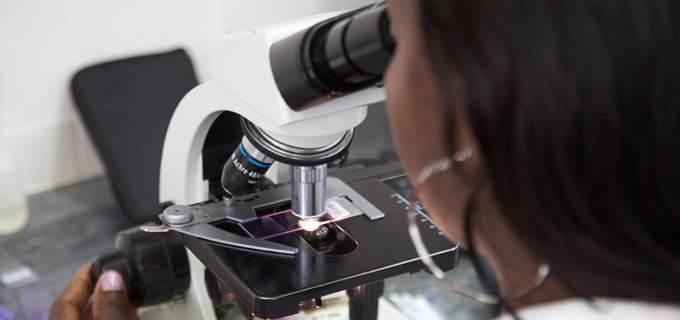The European Medicines Agency Issues a Positive Opinion on the RTS,S Malaria Vaccine
Together with the Manhiça Health Research Centre in Mozambique, ISGlobal pioneered the vaccine's efficacy and security trials in Mozambican children
24.07.2015
The candidate malaria vaccine Mosquirix™, also known by its scientific name RTS,S, yesterday received a positive opinion from the European Medicines Agency, which brings it a step closer to being used as a preventive method against malaria in sub-Saharan Africa. ISGlobal has collaborated directly in the clinical development of RTS,S.
EMA analysed, among many other documents, the results of a Phase III clinical trial that was conducted over a period of five years by eleven African research centres, including ISGlobal's strategic partner, the Manhiça Health Research Centre. According to the final results, RTS,S managed to reduce malaria cases in 36% of vaccinated children older than five months of age. Despite its limited efficacy, RTS,S has the potential to prevent thousands of malaria cases in highly endemic areas and always in combination with existing tools, such as insecticide-treated mosquito nets.
Dr Regina Rabinovich, director of ISGlobal's Malaria Elimination Initiative, celebrated AEM's approval and said that this a clear example of what the collaboration between academic institutions, the pharmaceutical industry, governments from endemic countries and populations who suffer daily the effects of malaria, can achieve in the search for tools against diseases which affect the poorest countries. "This first vaccine against malaria is a scientific landmark and leads the way in showing what investment in research and development can achieve for poverty related diseases. EMA's positive evaluation is an important step forward on the pathway towards the long term goal of achieving the elimination of the disease".
CISM's director, Dr Eusebio Macete, highlighted the need for the existence of scientific research centres of excellence in Africa which can provide the regulatory authorities with the necessary evidence on which they can then base their recommendations. Macete also thanked all the families whose children participated in the vaccine trials and also thanked the health authorities in Mozambique, one of the world's top ten countries most affected by malaria.
For over a decade ISGlobal and CISM have worked uninterruptedly on the development of RTS,S. In 2002 they undertook a safety evaluation study. This, led to the development of the first proof of concept to demonstrate the safety and efficacy of the vaccine in Mozambican children, which then finally resulted in the multicentric phase III clinical study, the results of which have been analysed by EMA. ISGlobal also coordinates a research consortium that studies the immune response generated by RTS,S and which will provide crucial knowledge for the future development of second generation vaccines.
The next milestone is for the World Health Organisation (WHO) to issue a recommendation on the use of RTS,S as a tool for controlling malaria in endemic countries, where the national scientific and regulatory committees should also issue their approval. If the RTS'S meets all these requirements, it could become the first ever vaccine to be used in public health against a parasitic disease, and it's rollout in the field would allow for an effectivity study in real conditions, which would thus provide essential information for the improvement of its effectivity.
RTS,S protects against Plasmodium falciparum, the deadliest of the four parasites which cause malaria, a disease that each year kills over half a million people most of whom are children under five years of age in Sub-Saharan Africa. The vaccine has been developed by the pharmaceutical company GlaxoSmithKline with financial support from the Bill and Melinda Gates Foundation through PATH's Malaria Vaccine Initiative (MVI).
Learn More
WHO questions and answers on malaria vacccines



